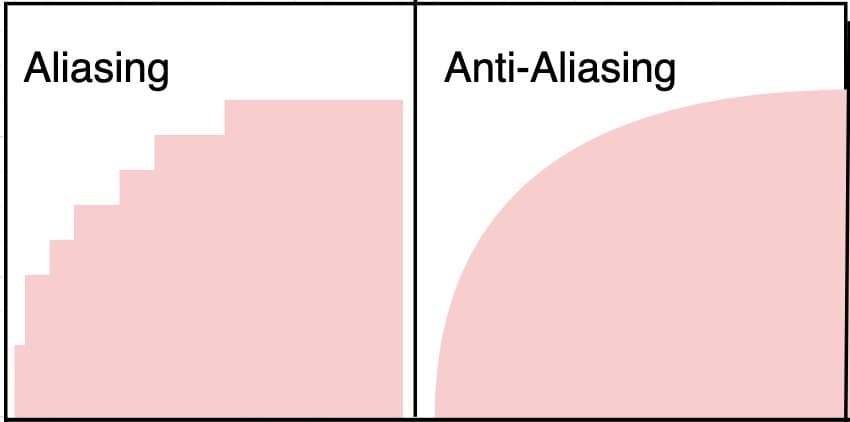What is anti-aliasing?
Anti-aliasing is a technique used by users to get rid of jaggies that form on the screen.
Since pixels are rectangular, they form small jagged
A few anti-aliasing techniques are defined below:
MMA
Multisample anti-aliasing uses multiple samples of a few pixels to create a higher-fidelity image. The higher the number of pixels used, the better the picture, but at the cost of GPU power. This technique balances high-fidelity and performance in the most efficient way.
FXAA
Fast Approximate anti-aliasing is used on low-end devices. It smoothes a 2D image without taking into account the 3D geometry. This technique, however, results in blurred edges.
SSAA
Supersample anti-aliasing renders at a high resolution and then downsizes the game to a lighter resolution. SSAA produces a sharper image but at the cost of GPU performance.
MLAA
Morphological anti-aliasing works like FXAA and blends in the pixels. It does not consume many resources; however, MLAA also results in the corners becoming blurred.
SMAA
Subpixel morphological anti-aliasing works like FXAA. SMAA, however, reduces the blurred edges and results in a sharper image.
DLSS
Deep learning super-sampling relies on Tensor cores and deep learning models to generate sharper, crisper images at a high resolution.
Free Resources
